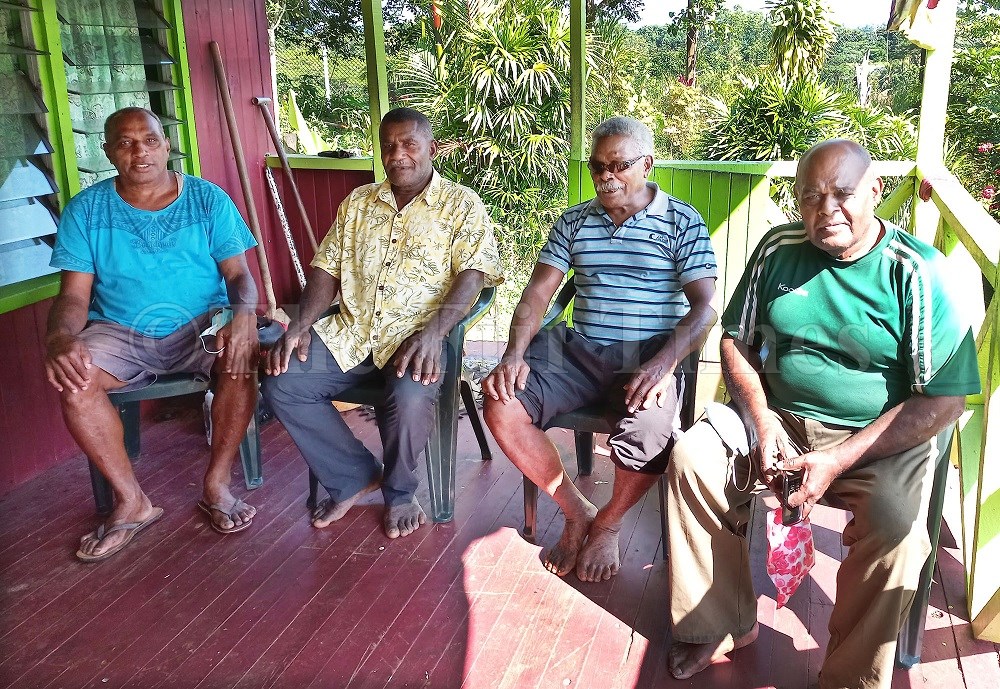One would not expect a song about the brutal murder of a young woman to become a hit.
But the story of the tragic slaying of 20-year-old schoolteacher Evelyn Nair called Talanoa Ni Noqu Sota Kaya took the Senirauvula Group from obscurity to fame.
The abduction and horrific events that led to the Niusawa Methodist School teacher’s death captured headlines across the country in 1972.
The leader of the Logani, Tailevu, group Anare Toroca claimed an incident a few days before her body was discovered, which may have led to the capture of the two murderers. Toroca said his brother, Ilimotama Ciriki (now deceased) composed all their songs.
“We had two recordings, one in 1970 and the other in 1978,” the 64-year-old said.
“Our hit song in 1978 was about Evelyn Nair and her murder.
“It all started during a function in our village and my elder brother and three others went to buy cigarettes at Tobuniqio Village.
“On their way back they heard a girl crying and they threw stones at a car that was parked by the side of the road. The next thing they knew, the engine started up and it fled from the scene.
“The next day we heard over the radio that a girl was missing and if anybody knew of her whereabouts to report it to the nearest police station.
“I believe our information helped to get the two murderers caught.”
Toroca said the song was titled Talanoa Ni Noqu Sota Kaya.
It was recorded after the court case resulted in the two accused being handed life sentences.
He said that song started with how Ciriki and the boys from Logani saw the car and the events that led to how the two murders were apprehended by the police and ended with the court case.
Toroca said while it was one of the darkest chapters in Fiji’s history, it was also a reminder of how precious life is and the need to keep reminding people to respect each other.
He said the song sparked a lot of interest in the group and many often asked after the origin of their name.
“We were named after a flower called the uci which many people know about, but didn’t know the link to our name.”
Toroca said most of their songs were about everyday life in the village.
He said one song that became quite popular was about the Logani youths who went to cut sugarcane in Tavua and how they met a friend there who took them to his village.
“The song was about our kinship and how our friendship defies geographical boundaries and how they last forever.
“Another song was about a lady who used to catch crabs, and she would start from our village until she reached Bau landing and then work her way back again by paddling a wooden canoe (bavelo).”
Toroca said most of their songs were based on real events and he believed they struck a chord with listeners and that’s why they remained popular to this day.
He said after many years of feasting, dancing and enjoying life, the Senirauvula Group called it quits when most of the members gave their lives to the Lord.
He said despite the change of heart, whenever he heard their songs being performed at village functions, it always brought a smile to his face.
“I believe the way songs were recorded before also made a difference.
“I remember that during our time we sat in a big room with the recording engineer in the other room and a dark glass separating us.
“And everything was played and sung live and the recording captured that spirit of happiness or sadness.
“I can still see the look on people’s faces when they come back from a hard day’s work at the farm and tune in to Radio Fiji One, the old songs just relax you and brings a perfect end to the day.”
Toroca also said the old composers were ingenious in hiding the names of ladies linked to a particular song.
He said a good example was an old song called Kasa Na Tetewa Bua Kei Na Jiale.
“Bua kei na jiale is the name of two beautiful flowers and the composers put that line in the lyrics to represent the
two beautiful ladles the song was about.
“Only those who were privy to certain information would know who the ladies were and what the song was about.
“Today, there are too many rosi songs played over the radio and they have no meaning. We need to revive the old way of composing.”



